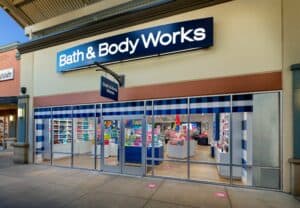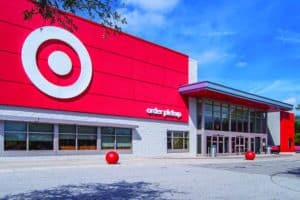
iStock.com/JillianCain
May 17, 2024
How Should The Container Store Be Reorganized?
The Container Store posted its second straight year of losses, received a delisting notice from the New York Stock Exchange, and is evaluating strategic alternatives that may include a sale.
The delisting comes as the retailer’s shares have been trading under $1.00, well below its high of $45 reached in 2013 when it ranked among Wall Street’s IPO darlings. The Container Store was initially lauded across the investment community for its employee-first culture and potential as a category killer in the organizing solutions space.
By 2016, however, sales and profits were sliding amid heightened competition as Kip Tindell, Container Store’s co-founder and visionary, stepped down as CEO. Fortune said at the time, “Container Store has struggled to adjust to a tough retail environment amid more aggressive moves by rivals like Walmart, Staples, and Ikea, as well as e-commerce’s incursion into its product category.”
The chain received a boost in the early stages of the pandemic as stay-at-home restrictions led to elaborate closet remodels and a partnership was formed with organizing guru Marie Kondo, star of the Netflix series “Tidying Up with Marie Kondo.” However, the decluttering craze also drew even more competition, including Walmart partnering with the “Get Organized with the Home Edit” Netflix series on a collection and Target launching Brightroom, its first storage and home organization private label.
The Container Store’s challenges also come amid softness across the home space coming out of the pandemic, marked by the closings of Bed Bath & Beyond and Tuesday Morning.
Container Store’s sales peaked at $1.1 billion in its fiscal year that ended March 31, 2022, but it closed its latest fiscal year at $847.8 million, below pre-pandemic levels.
In an interview with Dallas Morning News in 2022, Satish Malhotra, The Container Store’s CEO since 2021, cited the retailer’s extensive product range spanning 10,000 items as well as expertise, reliability, and warranties as continued points of differentiation.
On its fourth-quarter analyst call last week, Malhotra announced plans to build on those strengths, including further leaning into its Custom Spaces platform, a newer business that was introduced after the company’s December 2021 acquisition of Closet Works, a manufacturer of wood-based closet organization systems. The acquisition built on The Container Store’s custom closet offering, including increasing its capacity to sell custom spaces that cost more than $2,000.
With more than 100 in-home designers and plans to hire over 50% more this year, Malhotra reiterated that he sees Custom Spaces having the potential to grow “from 40% of sales to 60% of sales over time.”
Custom Spaces comp store sales declined 14.2% in the fourth quarter but comparatively outperformed retail comps and saw slightly positive comps in premium lines. Retail comps were down 21.8% due to a 26.7% decline in general merchandise categories.
To better support the Custom Spaces business, The Container Store is lowering some prices with the benefit of decreased costs in raw materials and freight while better prioritizing the completion of projects on time and within budget. The business is also being better linked to stores. At the store level, private label investments are being made to bring in some lower price points.
Marketing overall is being shifted to more of a full-funnel marketing approach to raise brand awareness for both the Custom Spaces and retail businesses after approaches in the past year focused on driving conversion amid constrained marketing budgets.
A positive is that the organizing solutions opportunity remains robust. According to a recent survey of 2,000 U.S. homeowners by The Container Store, 40% are afraid of facing the clutter in their homes and more than 70% feel overwhelmed when their homes are untidy.
Malhotra told analysts, “There are so many consumers out there contending with the stress of clutter in their homes, and we are uniquely equipped to help them to reclaim their lives and their spaces back. So the more that we can tell that story, the better we can help our customers overcome their current constraints.”
Discussion Questions
How do you think The Container Store may have to reposition itself amid heightened competition in the organizing solutions category and the pullback in home investments?
Will the chain’s shift to focus on Custom Spaces help support a retail recovery?
Poll
BrainTrust
Paula Rosenblum
Co-founder, RSR Research
Clay Parnell
President and Managing Partner
Warren Shoulberg
Senior Contributor, The Robin Report
Recent Discussions








The problem with The Container Store isn’t organizational. It is a problem with demand. There are two dimensions to this. First, as it primarily plays in the home sector, Container Store has been impacted by lower rates of people moving home. It’s the same dynamic that has dragged down sales at many home retailers, including Home Depot. Second, Container Store – while a very nice shop – is selling relatively basic items for relatively high prices. Many of its storage solutions can be found more cheaply elsewhere – and don’t forget players like Target have made big moves on the category with their Brightroom own-brand. In this kind of environment, where consumers are looking to save money, Container Store is an expensive luxury that can be easily overlooked or bypassed.
And as for custom spaces: yes, there is long term potential here. But not until the housing market picks up. Current results from the custom spaces division are terrible. And this does not fix the problem with stores, which are mostly about products, not closet solutions.
Thank you Neil, that is where I was going with this topic. When you see competitors like California Closets, I think there is a possible path to be cut in burgeoning business. But as you point out, remodeling and new home interest rates are still hindering customers. I hope this clears, or Marie Kondo better have something else up her sleeve to innovate for the home.
When a 14% decline in comp sales is your brightspot, you know you’re in trouble. My (admittedly five minute) take is that – like many other troubled “category killers”- it’s hard to make it when most, or at least much, of what you sell is available at general merchandise discounters. Sure you can offer unique items, bu you then have moved to being a niche player, and the whole infrastructure you’ve built up as a larger retailer becomes a liability. I wish them well (and what I really hope is no one tells them they need to “think outside the box”, however tempting that may be.)
I agree that an infinite number of consumers are stressed by clutter, and The Container Store offers many types of “solutions” in a variety of types, shapes, materials, sizes, and colors. The market is still there. But a 14% decline in sales, a delisting, intense competition from Walmart, Staples, Target, and Ikea, means there are more issues than just reorganization.
I’m a customer at The Container Store, but I won’t pretend to be close enough to the situation, to offer perfect advice. I do happen to have a lifetime of marketing and retail merchandising experience, so only from afar, I have a few impressions and thoughts.
It was important to reduce the prices at TCS because the average American consumer would have spent a fortune if they purchased multiple items. Merchandise at TCS is very pricy, and competition appears to offer very similar items or less. I don’t know how much TCS’ prices were lowered or how much the reduced cost of raw material and freight affected their margins.
Even though competition may offer lower prices, TCS offers an intangible benefit in that it offers a colorful, fun, and enjoyable shopping experience. I think however that TSC needs to do a more dynamic job turning the shopping trip into more of an adventure, and I mean that in the positive sense.
Consumers are likely to purchase a variety of unplanned items if they can afford to, as they walk aisle to aisle, which should be (and might already be) an important objective of the store’s, to encourage that to happen.
As with most other retailers, TCS does not have many employees on the floor to assist customers, and given the financial situation, they won’t likely be adding to their in-store staff. The employees they do have are helping customers find the right aisles, and there is nothing wrong with that.
However, I would like to see employees become better trained to go a step further to help customers buy the right things to solve their personal clutter issues. In this type of business, interaction with customers will go a very long way for sales, volume, and loyalty, and its an advantage that TCS can offer in a much better way than competitors such as Target and Walmart.
I would also like to see more in-store videos which demonstrate how products can be used to generate more excitement. I would like to see more flair with signage and displays especially when products on promotion. TCS should increase the emphasis on “power of suggestion.” Again, its something they can do much better than competitors.
TCS is a company I like very much, and have purchased quite a few products from their stores. Using myself as an example, I’m an ideal customer but I don’t see much follow up or enticements after any of my shopping trips. That too is a missed opportunity.
The TCS web site is good with its large images of items shown in the right types of places, and the site is easy to navigate. However, I think I’d like to see the site become more interactive with the customer in a similar way that paint stores do. I would also like to see more color on the site because color is exciting.
Ironically, the TCS where I shop is a little bit “cluttered.” I believe cost and efficiency can be accomplished with fewer lines, especially where different types of items accomplish the very same objectives. The other benefit with “less is more” is it makes the shopping experience easier for customers. At present, it can be confusing, even stressful, to decide which items to buy.
I am a big fan of TCS, and I hope they survive and thrive for a long time to come. From afar, I have the impression, right or wrong, that the company would benefit from outside resources who will bring excellent retail merchandising experience. They might already have the right people, and I have no way of knowing if they do or don’t, but sometimes it helps to bring an outside expert in for some new ideas. I’m not volunteering but there are some sharp merchandisers in the marketplace. -Db
It’s a shame, because Container Store is a great store providing a great customer and employee experience. Problem is that retail is about product, and it seems consumers are cleaving back to mass merchants and one stop shopping.
I suppose what I’d like to see is a strategic merger in a B2B environment. There are few messier places than retail back rooms.
sadly, the category killer is dead at the moment, so Container Store needs to be part of a more total solution.
Paula, what’s your opinion of a store within a store- like a Lowe’s or Home Depot type store with a Container Store mini department?
I’m lucky enough to have a Container Store a few blocks away, but I’ll cop to ordering a lot of things from Walmart or Amazon because of the one-stop convenience. (Sidebar: I find it hard to imagine that Staples is real competition for TCS.)
I am a fan of The Container Store. I’m not always as organized as I could be, but I like the idea of having everything organized.
From a merchandising standpoint, they likely have over-extended their assortment, and could use some paring back. Second, they need to focus on pricing, and finally, enhanced marketing and promotions beyond their annual elfa sale.
The competition is indeed tough and has gotten more crowded, but The Container Store has upside.
I can buy a clear plastic bin from The Home Edit (a TCS partner) for $35, or a similar plastic bin, also from The Home Edit, at Walmart for $17. I’m a discerning consumer with disposable income, but clear plastic is clear plastic.
There comes a point where even the most dedicated Container Store customer has to organize their organizing “stuff”, a sure sign that there is no need to purchase any more. What’s the innovation in that space? I have no idea.
The Container Store is the best little store that should have never gone public. As a privately owned company they could have navigated things a whole lot better. That said, it is one of most contrary retailers out there. It treats both its customer and employees better than just about anybody and has loyalists among both. But its store siting plans have been so wrong for years. The Lexington Avenue store on Manhattan’s Upper East Side was the wrong store in the wrong place. It’s taken them forever to open in Brooklyn where its true customer base is. Why doesn’t it have dozens of small format stores — in both urban downtowns and lifestyle centers — that are essentially showrooms with ordering stations rather than larger locations in strip centers where customers may not be thinking organization and storage? Could it open shop-in-shops in Home Depot or Lowe’s? Why didn’t it do that with Bed Bath & Beyond? What about connecting with Williams Sonoma which got out of the storage sector years ago? There are so many ways TCS could have expanded its business and yet it has been slow to act. It is now paying the penalty for that. I hope it doesn’t go away, there’s a niche for it…done right.
The Container Store must focus on differentiating itself amid growing competition and reduced home investments. Emphasizing their Custom Spaces platform is a smart move, given the decline in general merchandise sales. By offering personalized, high-quality storage solutions, they can cater to customers willing to invest more in customized organization.
However, this alone may not be enough. They should also enhance their marketing strategies to better communicate their unique value propositions, such as expertise and reliability. Expanding lower-priced options through private labels could also attract more budget-conscious customers.
Additionally, integrating online and in-store experiences will be crucial to stay competitive. Overall, the shift to Custom Spaces can help in recovery, but it needs to be part of a broader, more flexible strategy.